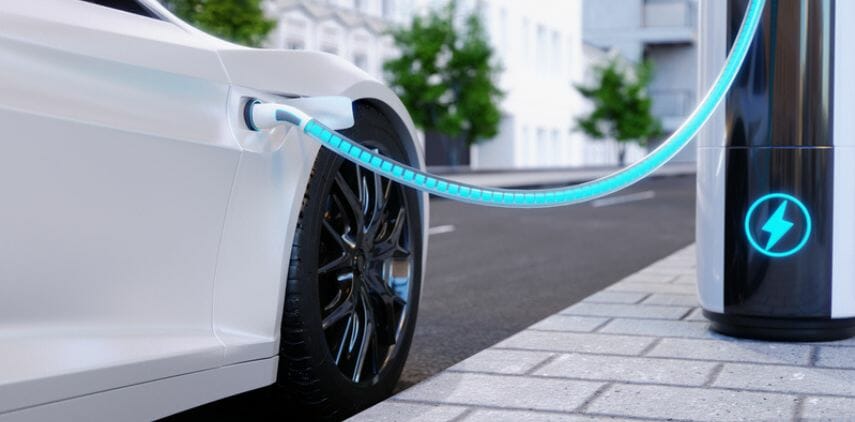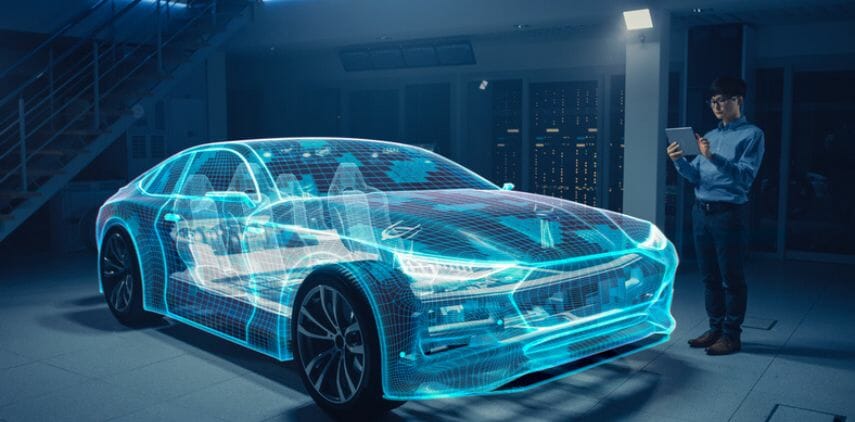Overview
A hot trend in the world of cars, electric vehicles are here to stay. 38% of Americans say that they are likely to consider buying an EV for their next purchase, and this number would most probably soar up in the future.
At a time when climate change endangers the future of humanity and we are looking for ways to reduce impact, electric SUVs can be a viable alternative to traditional vehicles. They reduce carbon footprint, promote sustainability, and propel us towards a greener future.
In this article, we’ll delve into the various benefits of electric SUVs.
The Problem with Traditional SUVs
Traditional SUVs, powered by combustion engines, impact the environment negatively in many ways. We’ll discuss 3 key areas here:
- The internal combustion engine of SUVs is responsible for emissions and air pollution. As the fossil fuel burns in the vehicle, harmful pollutants like nitrogen oxides and particulate matter are released into the air, which lower the air quality index (AQI) and pose threats to human health.
- The combustion process emits greenhouse gases, which eventually contribute to climate change. These gases trap heat in the atmosphere, leading to an unnatural rise in temperatures globally, altered weather patterns and conditions, and many other consequences. While all vehicles are responsible for this environmental hazard, the impact of SUVs is more as they consume higher amounts of fuel than regular cars.
- The manufacturing process of traditional SUVs is quite problematic, as it requires a huge resource consumption. Automakers need larger amounts of raw materials, water, and energy supply, which eventually contribute to the depletion of resources and generate tons of waste. The production of non-biodegradable materials such as steel and plastics is dangerous for the environment, as they potentially have the power to destroy habitats and increase carbon emissions.
To mitigate these negative effects, automakers all around the globe are trying to make SUVs more fuel-efficient, promote more electric and hybrid SUVs, and make the SUV manufacturing process as sustainable as possible.
The Advantages of Electric SUVs
Electric SUVs have already emerged as a more sustainable mode of transport. Let’s have a look at some of the benefits that make these vehicles a compelling option in today’s market.
- Electric SUVs generate zero tailpipe emissions as they use electricity instead of fossil fuel. As a result, their contribution towards environmental pollution is way less in comparison to traditional SUVs. With electric SUVs becoming more widespread, we can look forward to improved air quality and a significant reduction in health risks caused by harmful emissions such as nitrogen oxides and particulate matter.
- Climate change is a burning topic of discussion all over the world and it’s high time we do something to control the damage. The transportation sector contributes big time to greenhouse gas emissions. By switching to electric vehicles, which rely on electricity produced by renewable resources, it’s possible to reduce carbon footprint and help combat climate change. With governments and big corporations prioritizing the improvement of EV infrastructure, we can expect electrified cars to be a true agent of change.
- Electric SUVs are considered to be more fuel efficient than traditional cars that run on diesel or gasoline. The adoption of EVs supports a steady and gradual shift from using fossil fuels and the exploration of cleaner and renewable energy sources. So with EVs, the overall energy consumption is low, and at the same time, there is a huge possibility of completely moving away from non-renewable energy sources—this is a significant step towards an environment-friendly automotive market.
Environmental Benefits Beyond Emissions
While EVs play a big part in reducing emissions and carbon footprint, their impact goes far beyond. Let’s take a look:
- The operation of electric vehicles is quieter in comparison to combustion engine vehicles, more so when you’re driving at lower or moderate speeds. With every household having multiple cars these days, noise pollution is at its peak in urban areas. EVs emerge as a great solution here, as they can potentially reduce noise pollution and ensure the residents can live peacefully and the wildlife in urban areas can harmoniously coexist without being disturbed.
- EVs do not need large fuel stations or extensive infrastructure for extracting, refining and distributing oil. So needless to say, they reduce the overall demand for land that is generally required for traditional vehicles. This advantage of EVs can potentially save ecologically sensitive lands such as dense forests, wetlands, and habitats that are on the verge of destruction to establish oil extraction infrastructure. With more and more people opening up to buy EVs, we can free up lands that would have been used for fossil fuel infrastructure and promote alternative land use practices that focus on conservation and ecological restoration.
Overcoming Challenges and Misconceptions about EVs
Overcoming challenges and misconceptions related to electric vehicles (EVs) is crucial to accelerating their widespread adoption and maximizing their environmental benefits. Here we’ll take a look at some common concerns regarding EVs and how we can mitigate them:
- Concerns about limited driving range and charging infrastructure: The driving range of electric SUVs compared to gasoline-powered vehicles is considered to be limited. But the good news is, with the latest advancements in battery technology, EVs today have a high range so you can travel long distances with a single charge. Moreover, charging infrastructure has also improved with help from governments and corporations, so charging EVs is not a problem either. With time, we can expect to see more fast-charging stations and even better electric range to get rid of range anxiety.
- Life cycle environmental impacts of electric SUVs: Some critics argue that the environmental benefits of electric SUVs are negated by their manufacturing processes and battery production. While it is true that EV production does have an environmental footprint, studies consistently show that the life cycle environmental impacts of electric SUVs are still lower than those of traditional gasoline SUVs, especially when considering emissions over the vehicle’s entire life. As technology advances and the industry adopts more sustainable manufacturing practices, the overall environmental impact of EVs will continue to improve. It is crucial to communicate and understand the comprehensive life cycle analysis of electric SUVs to appreciate their positive contribution to environmental sustainability.
Conclusion

It’s true that a big section of buyers are still unsure about making a switch to EVs. But by understanding their benefits for society and the environment as a whole, we are sure modern buyers would eventually make a wise choice and pick vehicles that are better for the planet and our future.





